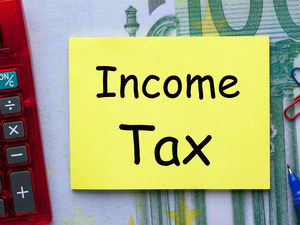As per the memorandum to the Budget 2021, “In order to provide relief to senior citizens who are of the age of 75 years or above and to reduce compliance for them, it is proposed to insert a new section to provide a relaxation from filing the return of income.”

As per the memorandum to the Budget 2021, “In order to provide relief to senior citizens who are of the age of 75 years or above and to reduce compliance for them, it is proposed to insert a new section to provide a relaxation from filing the return of income.”
Who has to file ITR? What happens if you don’t file?
Abhishek Soni, CEO, Tax2win.in, an ITR filing website says, “The amendment related to relaxation for senior citizens (Age 75 years or more) in the filing of ITR after fulfilling certain conditions will be applicable from FY 2021-22 (assessment year 2022-23). Hence, it is important to note that if your income is more than the basic exemption limit, then you are required to file ITR for FY 2020-21.”
If a senior citizen misses the ITR filing deadline for FY 2020-21, then he/she will be liable to pay a late filing fee of Rs 5,000. However, the late filing fee will not exceed Rs 1,000 if the total income does not exceed Rs 5 lakh.
“Insertion of new procedural provisions or amendment to the existing procedural provisions (like TDS) is applicable from April 1, 2021. As Section 194P of the Income-tax Act, 1961 is a procedural provision, the bank shall be required to deduct tax under this provision on or after April 1, 2021, for FY 2021-22. Thus, income earned on or after April 1, 2021, will be subject to TDS under this provision. It would mean that the exemption from tax return filing to senior citizens aged 75 years and above (subject to conditions) shall be available from next year i.e., assessment year 2022-23,” says Chartered Accountant Naveen Wadhwa, DGM, Taxmann.com.
Who is eligible for the exemption?
In order to be eligible for exemption, there are certain conditions that must be satisfied by the senior citizens. These conditions are as follows:
a) The senior citizen should be resident of India and aged 75 or more during the financial year 2021-22,
b) He/she must have pension income only and no other income. However, in addition to such pension income he may have also have interest income from the same bank in which he is receiving his pension income. This would mean that the senior citizen should have bank account with only one bank in which pension is being received.
c) This bank account should be with a specified bank. The government has specified a list of banks which qualify for this purpose.
d) He shall be required to furnish a declaration to the specified bank. The declaration should contain such particulars, in such form and verified in such manner, as may be prescribed.
Once the declaration is furnished, the specified bank would be required to compute the income of such senior citizen after giving effect to the deduction allowable under Chapter VI-A and rebate allowable under section 87A of the Act, for the relevant assessment year and deduct income tax on the basis of rates in force. Once this is done, there will not be any requirement of furnishing return of income by such senior citizens for this assessment year.
Soni says, “The government via a notification dated September 2, 2021 has notified the list of specified banks where senior citizens can submit the declaration for exemption of ITR filing. As per the notification, pensioners can submit this declaration with any scheduled bank where they have a bank account in which pension is received.” The senior citizens are required to submit Form 12BBA to the specified bank to avail the ITR exemption.
Thus, an eligible senior citizen having a bank account with any scheduled bank can submit this declaration. However, remember that this declaration would be for the current FY and accordingly relate to an exemption from ITR filing for the current FY which would be due next year i.e. in FY2022-23.